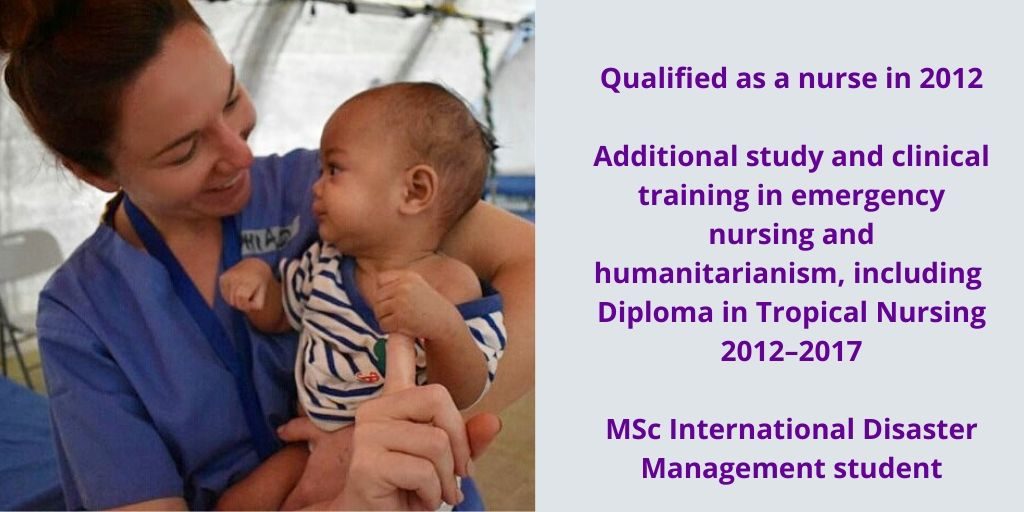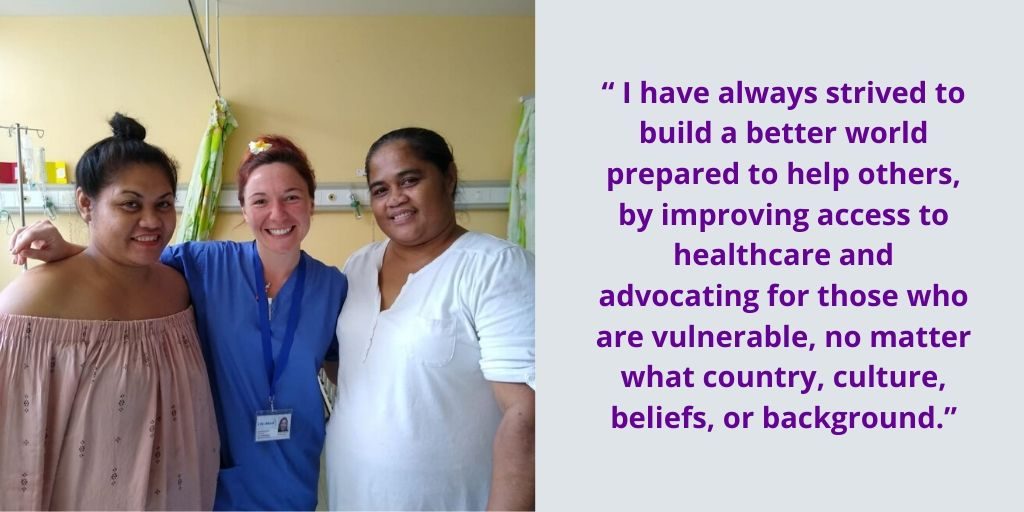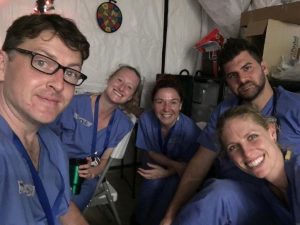Celebrating the International Year of the Nurse and Midwife 2020: Meet Sophia
We interviewed Sophia to tell us about her journey to the Humanitarian and Conflict Response Institute (HCRI), and what it’s like to be deployed by UK-Med as a nurse responding to emergencies overseas.
Sophia Turner, a humanitarian nurse in Emergency Medicine and member of UK-Med, was recently deployed to Samoa to assist with the 2019 Measles’ outbreak, and is currently studying the MSc in International Disaster Management at HCRI.
Why did you decide to study the MSc in International Disaster Management at the University of Manchester?
Having always been driven to pursue a career in humanitarianism, I studied to become a nurse, qualifying in 2012 with a first class BSc honours degree. I soon started working in the NHS and took the opportunity to specialise in emergency medicine and humanitarianism. Whilst working as a nurse, I received training in various clinical and academic courses including: Advanced Life Support, Advanced Burns Management and Advanced Trauma Nursing; Diploma in Tropical Nursing, Health in Complex Humanitarian Emergencies, and Emergency Obstetrics in Limited Resources Settings.
I wanted to find out more about master’s programmes at the Humanitarian and Conflict Response Institute, so I attended the annual careers day in 2018. During the day, I met David Wightwick, CEO of UK-Med, and found the MSc fuelled my passion for health equity, emergency nursing, global health, operations and management.
How has the course helped you in your career?
The MSc in International Disaster Management at HCRI has provided me with the opportunity to gain greater insight into the management and logistics of disaster preparedness, response, recovery, and capacity building; and to further a career in humanitarianism.
The course taught me about the theoretical and practical tools used in disaster preparedness and management, from a holistic perspective, whilst navigating and collaborating with the policies and procedures of host countries. I found that the modules in Disaster Management, Disaster Governance, Human Rights in World Politics (Politics Module), Psychological Well-being in Humanitarianism, and Humanitarian Protection particularly helped me in my career.
For any nurse or midwife who wants to pursue a career in humanitarianism; the one thing that many of my colleagues in the sector have said to me, and that has guided me to date, is- “say YES to every opportunity that’s offered to you”, and undertake each one of those opportunities to your greatest ability.
During my Diploma in Tropical Nursing at the Liverpool School of Tropical Medicine, I met two members of the UK Emergency Medical Team who shared their experiences of working with UK-Med, and their previous deployments to the Ebola outbreak in Sierra Leonne. They recommended I apply to be part of the Community of Practice, after hearing about my experience and passion for the field.
What experience have you gained so far?
I have volunteered in multiple capacities both in the UK and overseas. From the age of 18, I began extensive training as an emotional support volunteer for Samaritans. Over the last 12 years, I have provided emotional support to many in distress and in multiple settings. Including, health and social care workers, prisoners, and homeless people in hostels, and festivals events. I am also part of the Samaritans suicide prevention collaboration with Network Rail.
In 2017, I provided emergency care to migrants in a Greek refugee camp. I was also involved in chronic condition monitoring and management, infection prevention control and contract tracing, and assisted in the development of clinical and emergency procedures.
What is it like being a nurse on deployment?
It can be physically and emotionally challenging as it involves practicing in often arduous conditions. It requires flexibility and patience, whilst maintaining a high standard of care and cultural sensitivity, working in an rapidly changing environment. Nursing within humanitarianism means you take on other non-clinical roles within the team as you all ‘muck in’ together. This is also one of most enjoyable aspects as you meet passionate, likeminded people who all strive to support others in times of crisis. This not only includes the team that you deploy with, but all the health staff of the health systems in host countries and other people supporting the effort.
Do you have any advice to others nurses considering a career in humanitarianism?
For any nurse or midwife who wants to pursue a career in humanitarianism; the one thing that many of my colleagues in the sector have said to me, and that has guided me to date, is- “say YES to every opportunity that’s offered to you”, and undertake each one of those opportunities to your greatest ability.
Samaritans provides emotional support to anyone who is in distress or struggling emotionally, and is a free phone number that is available 24 hours a day (24/7), 365 days a year on 116123.





0 Comments